Why do I keep having nightmares?

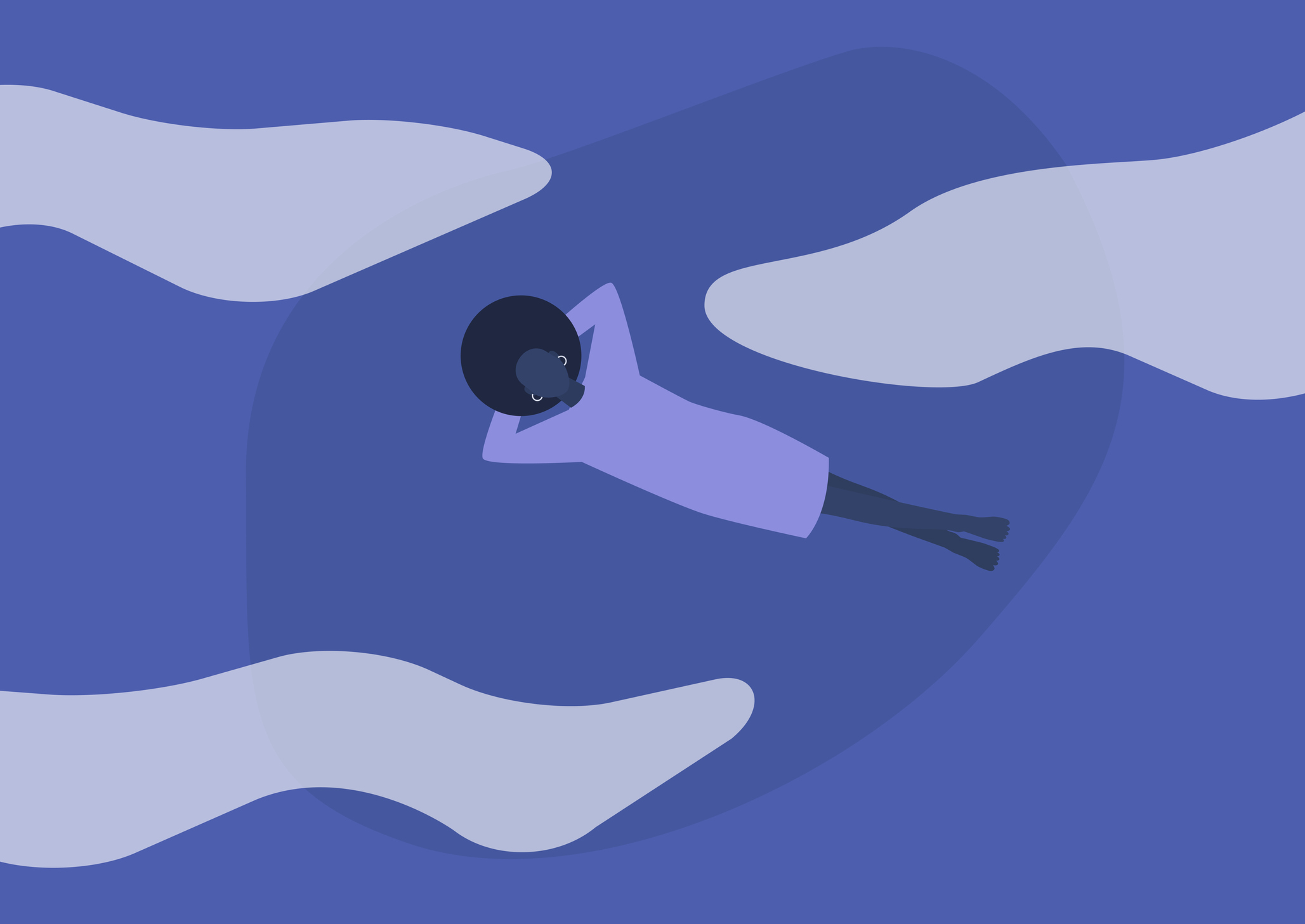
Parenting advice, hot topics, best buys and family finance tips delivered straight to your inbox.
You are now subscribed
Your newsletter sign-up was successful
If you're waking up exhausted because you keep having nightmares when go to sleep, you're not alone.
For many people, waking up too early, not being able to sleep and feeling tired all the time are the least of their problems. Vivid dreams and nightmares are reportedly on the up, with worst-case scenarios and apocalyptic events featuring in their sleeping subconscious - as well as on the news everyday.
We might think the reason behind this is obvious. The pandemic has completely turned our lives upside down over the last year.
According to a recent survey, three in five of people are having a harder time in this lockdown than previous ones. The prolonged changes in our lifestyles and ever-changing restrictions are affecting our sleep more than ever before.
Why do I keep having nightmares?
The coronavirus pandemic is at the forefront of everyone's minds and it's the main reason we all keep having nightmares at the moment.
"It is thought that dreams and nightmares happen during the REM phase of the sleep cycle," Dr Natasha Bijlani, consultant psychiatrist at Priory Hospital Roehampton says. "When we experience stress and anxiety, as many people have been doing during the coronavirus pandemic, this can increase the likelihood of having and remembering dreams and nightmares."
"Nightmares can be caused by various factors, and can actually represent change, which we are all going through," agrees Şirin Atçeken, a psychologist specialising in sleep. "It is natural for people to be having nightmares during lockdown, as triggers for nightmares include stress, anxiety, depression and feeling or being unsettled."
Parenting advice, hot topics, best buys and family finance tips delivered straight to your inbox.
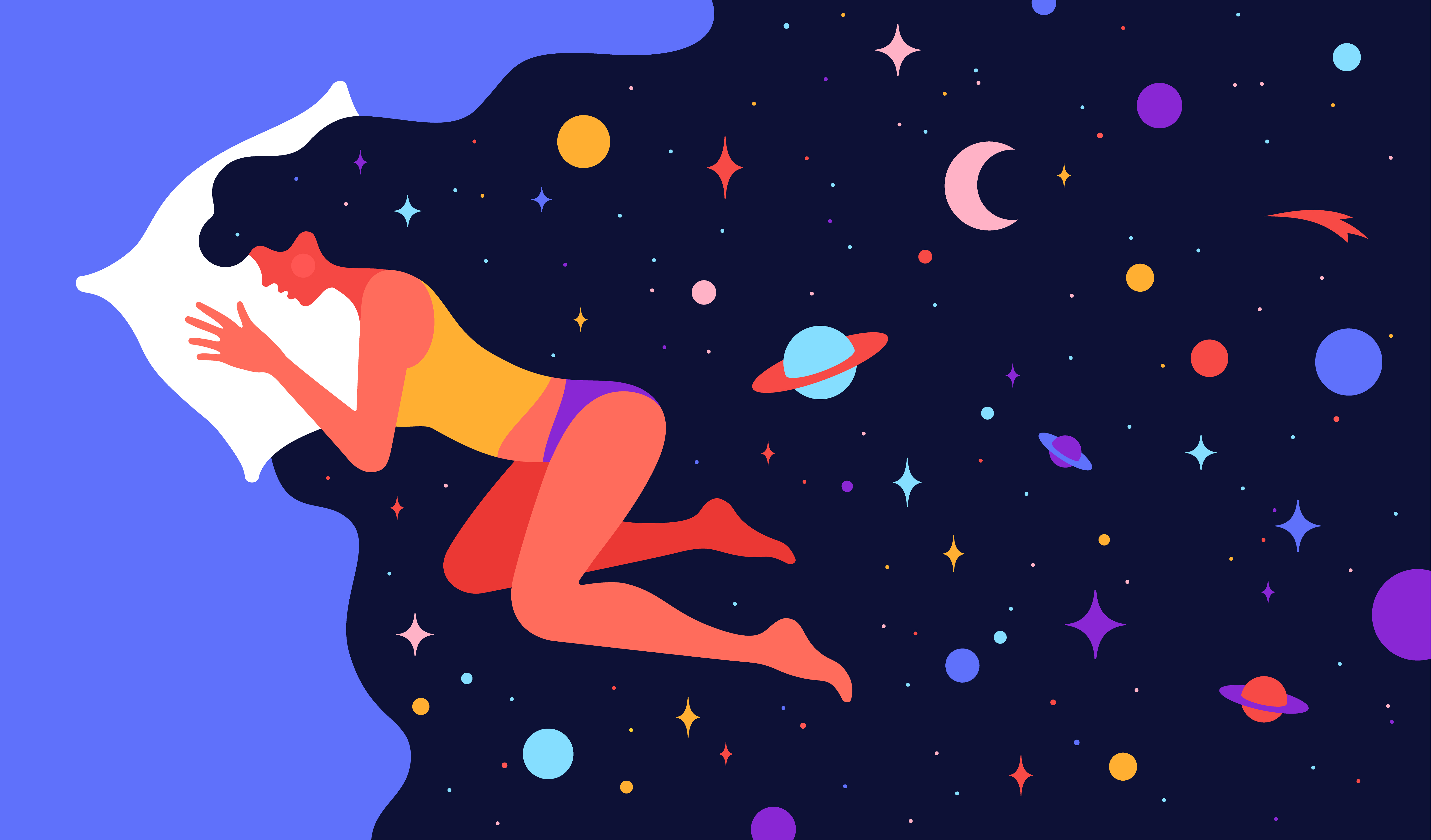
"Major changes in life including a death of a loved one, a job loss, divorce, or extra emotional stresses of everyday life can all lead to nightmares. But in normal cases, they are irregular. However, many of us are feeling all of these emotions and experiences all at once. That's intense and a lot for us to process. And when we are unable to process, or understand what is happening around us, or in our lives in a healthy way, they manifest into our subconscious. [This] can lead to vivid dreams and nightmares on a nightly basis."
The ever-increasing doom and gloom of the news cycle has also got a lot to do with why you keep having nightmares too. "Constant online searches, debates, and reviews, and increased checks on the spread [of Covid] in terms of the number of infected [people], and the number of subsequent deaths as a result of Covid-19 gives many a robust reason to think seriously about being potentially infected [with the virus]," explains Wayne Ross, sleep researcher and advisor at Inside Bedroom.

"Unconsciously, this leads to constant feeling of doom and potential infection and death. It also results in exaggerated levels of social distancing being deployed within families and among immediate family members," Wayne said.
The result of this constant stream of uncertain outcomes and unnerving information is causing a general lack of deep sleep and a big increase in sleep disorders for millions of people.
How to stop having nightmares
If you keep having nightmares during lockdown, there are some methods you can try to get a better night's sleep. Try these to reduce the frequency of your bad dreams:
Exercise
"Exercise, especially yoga, can help ground us and allow our mind to rest. When we are in states of trauma (and the pandemic is a traumatic experience), our mind goes into overdrive. We overthink, distract ourselves, and form bad eating and lifestyle habits, all of which affect our sleep. Allowing us time to relax, unwind and process is vital in achieving good synergy." Şirin, who also specialises as a eye movement desensitisation and reprocessing (EMDR) therapist at WeCure, says.
"Keeping our bodies healthy, in order to keep our minds healthy can help us sleep better and reduce nightmares. Regular exercise, walks, and meditation all give us time to switch off. [They] produce endorphins, boosting positivity, making us happier and more content."

Exercise could also help you recover from a bad night's sleep as it releases a hormone called cortisol, which helps us feel more awake. According to a recent study, it's actually one of the best ways to get over a rough night as it boosts alertness during the day more than caffeine, helping to give your brain a much-needed lift.
Stay away from the news
Dr Natasha Bijlani, consultant psychiatrist, says if you are experiencing anxiety and are finding that this is affecting your sleep, "I would also suggest that you limit your news intake to only 15 minutes every day. Constantly reading news stories about the pandemic will leave you feeling overwhelmed and cause your anxiety to intensify.
Also, "try to avoid using light emitting devices near bedtime as they will disrupt the release of melatonin".
Journaling
"Journaling is also a good thing to do before bed, as it allows us to clear our head of our thoughts and write them down, storing them away." Şirin explains, "There is a lot going on our heads that we don’t consciously recognise, and writing things down allows us to tap into our subconscious and come to realisations that we usually carry to bed with us, which reflect in our dreams."
Meditation
"Meditation and stretching is also important, not just for our minds." Şirin says, "We store a lot of our emotions and stresses in our bodies, which cause tension, which if unreleased can make us uncomfortable at nighttime and our bodies become distressed, which again, reflect in our dreams. If we are tense, we are more likely to have tense nightmares, than if we went to bed feeling relaxed and loose.
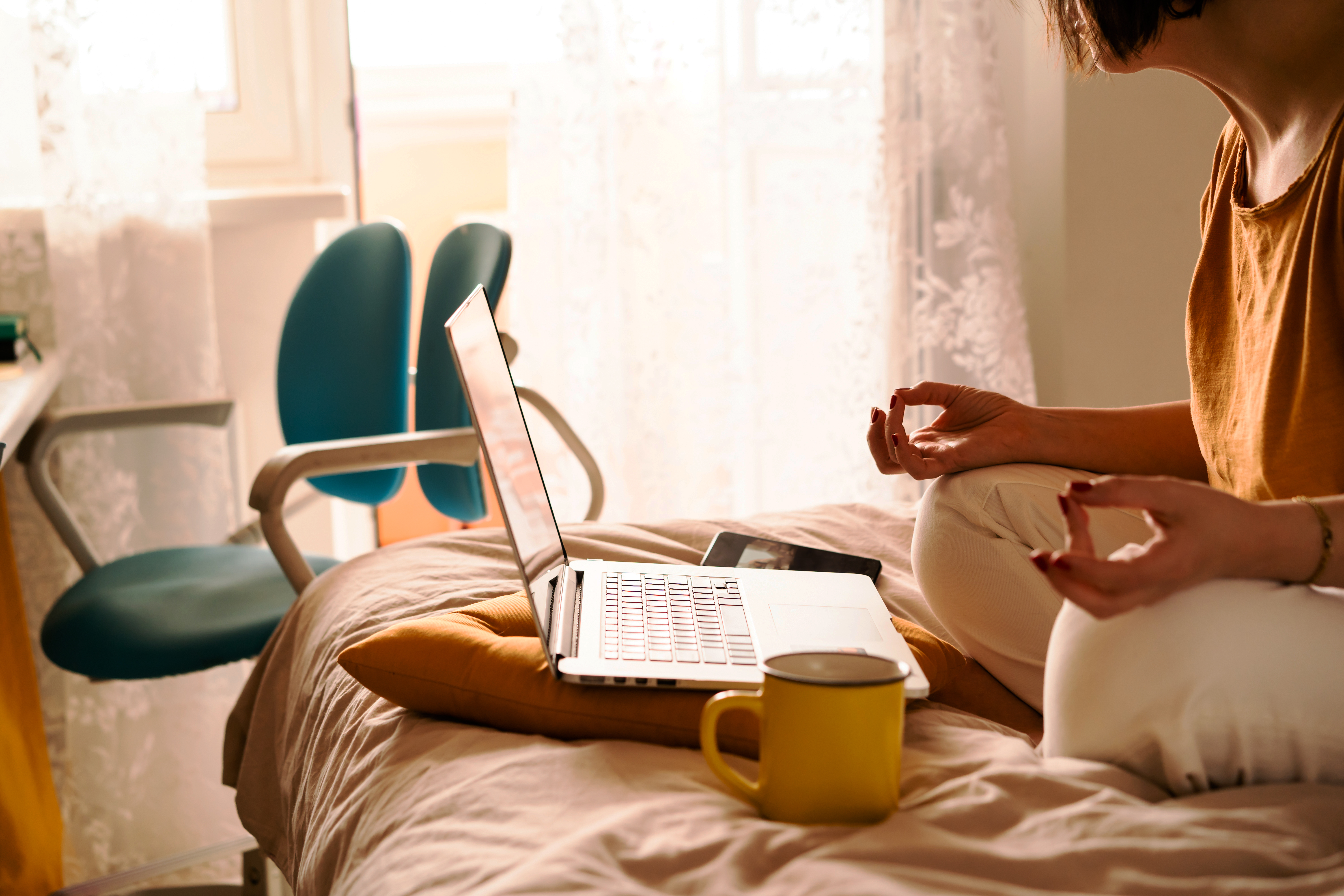
"Stretching is also a great way to keep active if you are unable to, or don’t want to work out. Another reason we are having vivid dreams is because we are not as active as we are used to being. Our minds remain active at night time to make up for this. Making sure we are keeping active, or keeping our body healthy is vital for a good night's sleep."
As well as breathing exercises like meditation, there are also plenty of natural anxiety remedies to try before you go to bed.
Better eating
"Eating patterns are as important as sleeping patterns. Good nutrition is more important in achieving good sleep than people realise."
"I’m not a nutritionist," Psychologist Şirin says, "But I would recommend avoiding eating late, and eating heavy carbs before bed, and try to eat foods that are good for brain and gut health. Avoid alcohol and caffeine, especially if you’re feeling low or tired, and stop drinking water around 7pm. This will stop you needing to go to the bathroom during the night. Interrupted sleep doesn’t do anyone any favours."
Dr Bijlani agrees, as she says, "Stay hydrated, but avoid drinking anything too close to your bedtime. Also, avoid an alcoholic ‘night cap’ or caffeinated drinks as these will disrupt your sleep quality."
If you like to have a glass of wine before bed, why not try one of the best non-alcoholic wines instead?
Fix your sleep environment
Making "your bedroom a comfortable space" and keeping "the temperature cool" can help fix your sleep schedule, Dr Bijlani says.
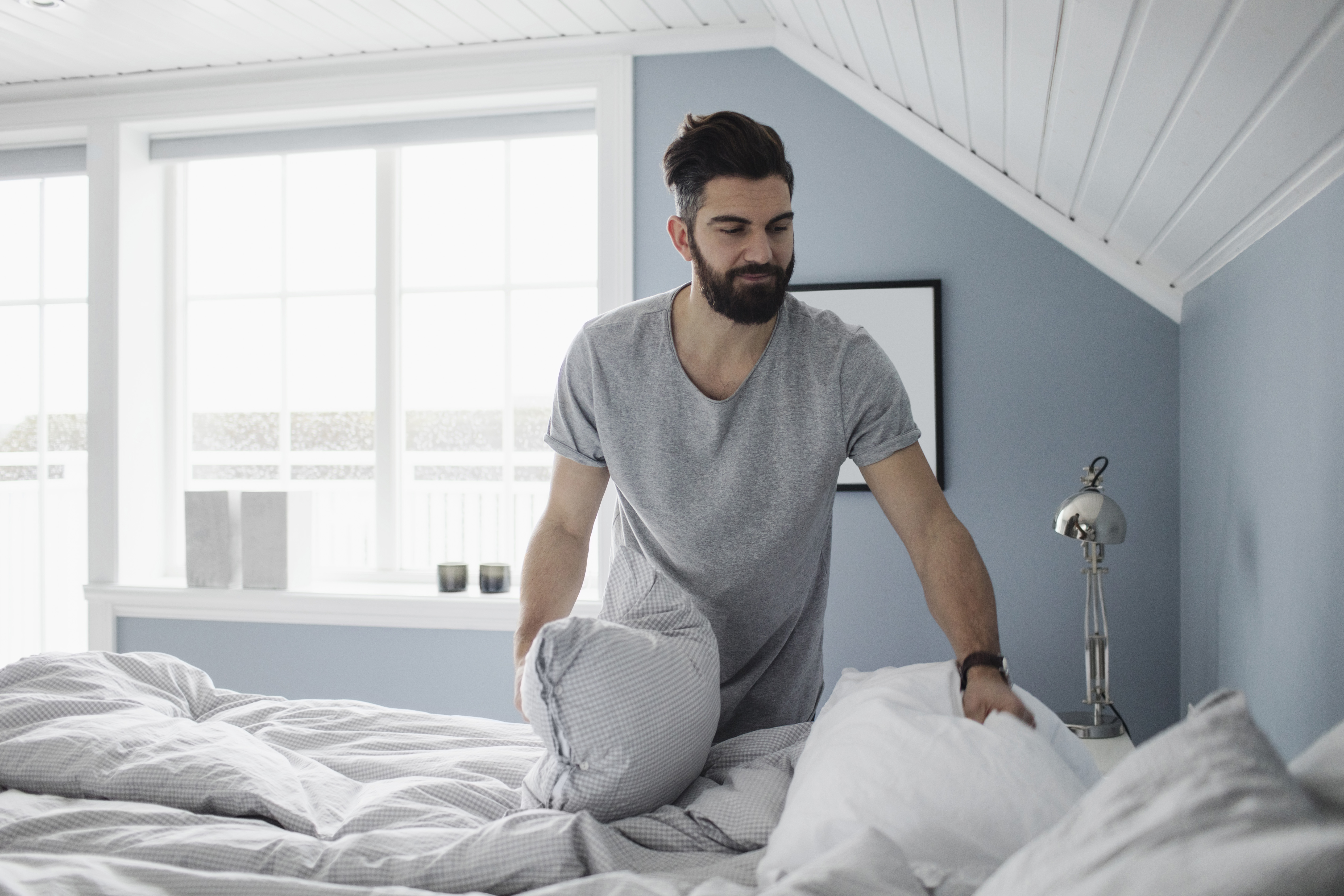
"Maintain a regular sleep-wake routine, where you go to sleep and wake up at similar times every day, even at weekends."
But if you are suffering with insomnia, "you may need additional professional support in order to help get your sleep back on track. You may want to book an appointment with your GP or with a psychiatrist specialising in sleep disorders."
Most common nightmares
If you're experiencing nightmares during lockdown, it's fair that you might want to know whether yours are "normal" or not.
According to Şirin, there are a couple of nightmares that seem to be cropping up a lot recently:
- Something chasing someone
- Drowning
- Unable to breathe
- Searching for something lost
- A lost loved one
- Being late
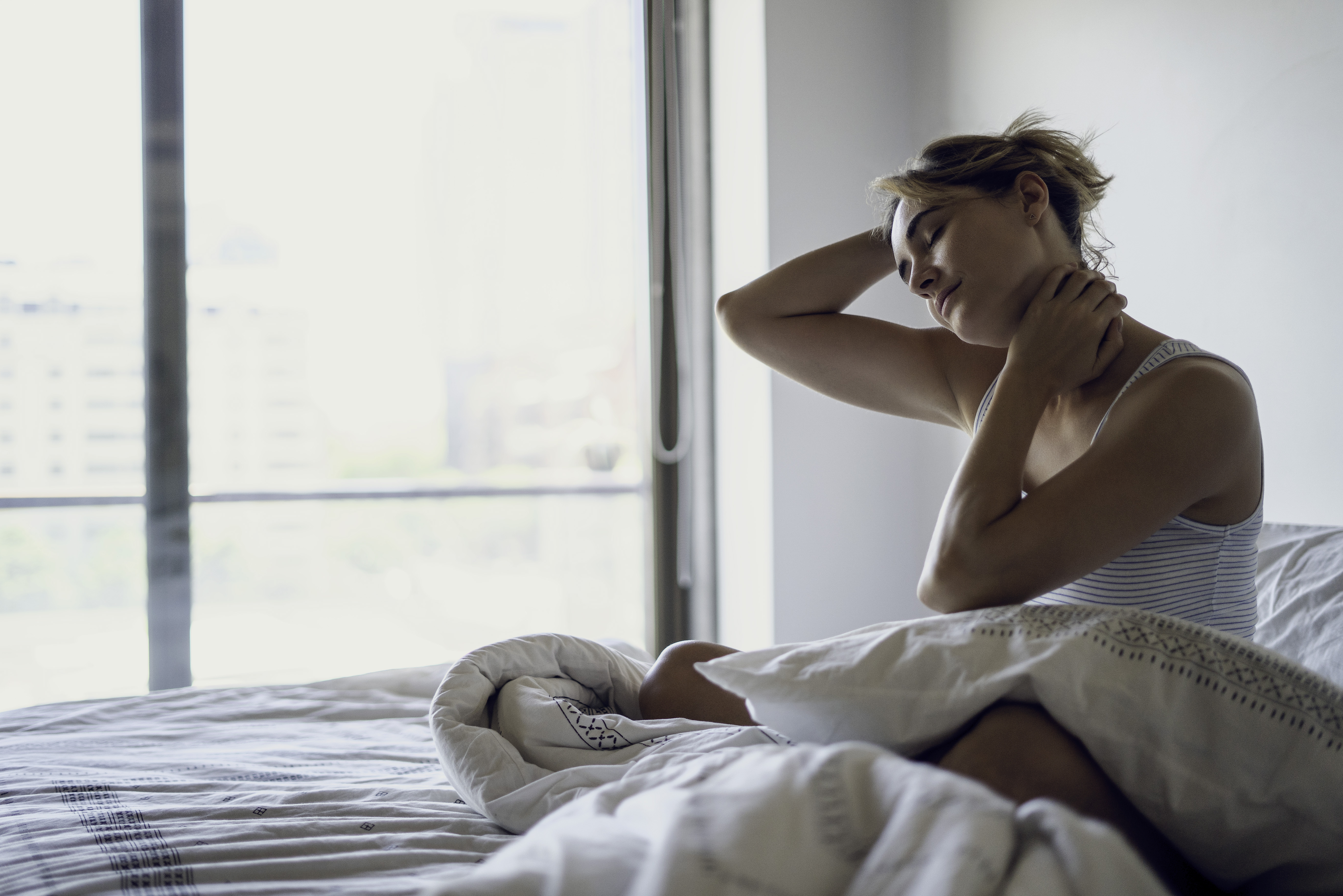
Hayley Smith, who experiences nightmares and night terrors, tells GoodtoKnow that it's especially bad during the latest lockdown. "I am having them nightly, waking up in cold sweats, and kicking out. Usually I dream I am running away from someone or something. Or, I'm trying to run for a door I can't reach, with someone trying to kill me. These have changed to me being held under water, or attacked by large crocodiles or snakes, or being buried alive. They result in me struggling to breathe and gasping for air when I wake up.
"Usually I am able to get back to sleep, or they don't affect my day. However these ones are especially vivid and I feel everything. I am often reeling from them hours or days later. I am addressing them with my therapist, and we think it's linked to lockdown bringing back past trauma or memories. Crocodiles and snakes can also represent change, and uncertainty. Crocodiles are a symbol of anxiety or danger."
Hayley, owner of Boxed Out PR says, "These dreams definitely bring more anxiety than my normal night terrors, but I think it's because of the change of pace and frequency. My dreams are also more vivid than they have ever been. I have learnt to deal with them through a yoga session or stretch before bed. Also, managaing my eating habits helps. I eat less before bed, and don't watch TV as this can sometimes influence my nightmares."
What's the difference between nightmares and night terrors?
Şirin says that night terrors are also becoming more common during lockdown - but they differ from your standard nightmare.
"Night terrors are different to nightmares, and can also be linked to sleep paralysis. Sufferers are jerked awake, terrified, and screaming and sometimes unable to breathe."
"Night or sleep terrors are caused by past and ongoing trauma. The pandemic has caused multiple traumas for many. It isn’t a surprise that more people are suffering from night terrors. However, what is worrying, is that mostly, even when recurring, they come in various patterns. But most sufferers are reporting nightly experiences that are more intense, and more debilitating.
"You can manage night terrors and nightmares with routine and regular exercise, and resting your mind. Lockdown has thrown our entire routine off. However, trying to stick to one will help with both mental and general health. As well as benefit our sleeping habits."

Grace Walsh is a health and wellbeing writer, working across the subjects of family, relationships, and LGBT topics, as well as sleep and mental health. A digital journalist with over six years experience as a writer and editor for UK publications, Grace is currently Health Editor for womanandhome.com and has also worked with Cosmopolitan, Red, The i Paper, GoodtoKnow, and more. After graduating from the University of Warwick, she started her career writing about the complexities of sex and relationships, before combining personal hobbies with professional and writing about fitness.